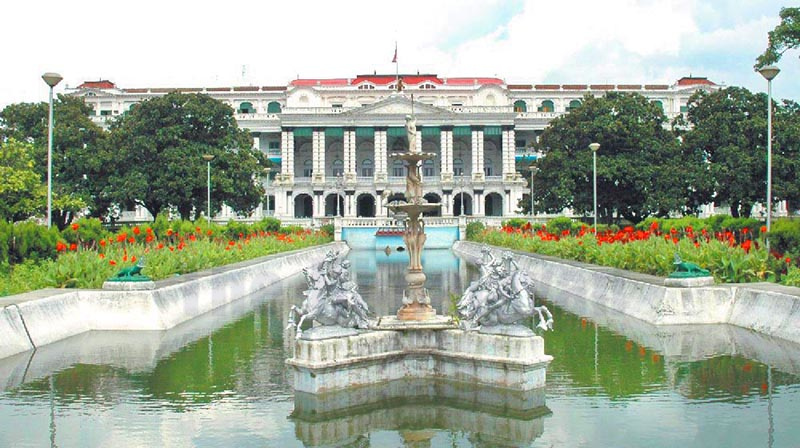Govt frames compulsory free education rules
KATHMANDU, DECEMBER 13
The government has framed the Compulsory and Free Education Rules-2020 to implement constitutional provisions and the Compulsory and Free Education Act-2018 accordingly.
The constitution mandates that every citizen shall have the right to get compulsory and free education up to the basic level and free education up to the secondary level from the state. The basic level comprises grades I-VIII, including one-year Early Childhood Education and Development and Pre-primary Education, while grades IX to XII fall under the secondary level along with technical stream.
As per the rules recently published in the Nepal Gazette, the local levels shall conduct literacy programmes in their areas with the aim of making illiterate citizens literate.
Literacy programmes may be conducted through community learning centre, basic adult education or traditional and non-formal education.
The period of literacy programmes shall be of three months. Any citizen, who has made it through the threemonth course and is declared literate, will not be eligible to participate in such programme again.
Similarly, the rules require the local levels to make arrangements for a residential facility for needy children to help them complete up to basic or secondary level education.
Children, who are orphans and have not been able to go to school due to various reasons, will be entitled to the residential facility.
“No community school shall be allowed to charge admission fee, monthly tuition fee, examination fee and textbook fee up to the secondary level,” the rules say. In addition, the local levels shall make special provisions for the education of differently-abled, Dalit and poor children. The teaching-learning materials developed should be disabled-friendly, besides providing such children with midday meal, school uniform and other basic facilities.
For the purpose of implementation of the act and rules, the local levels shall collect and maintain the details of illiterate citizens, differently-abled children (according to the nature of their disability), children who have been out of school due to various reasons, Dalit children studying in the basic and secondary levels, children whose parent(s) are unidentified and drop-outs in their areas. These details shall be updated within one month of completion of each academic year.
The rules have also stipulated a provision for a five-member scholarship management committee led by the chief of the local level to identify and select beneficiaries for scholarship to be provided to children as per the law. Likewise, the local levels may conduct the programmes of alternative and open education.
“There shall also be an eight-member monitoring committee headed by a secretary at the Ministry of Education, Science and Technology to carry out monitoring of the implementation of the act and rules related to compulsory and free education,” the rules read.






